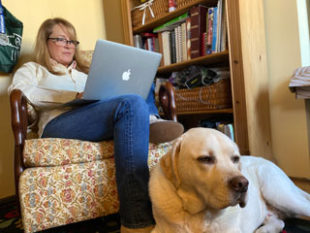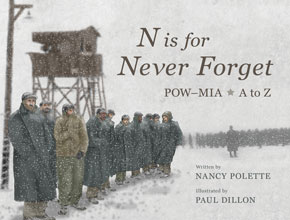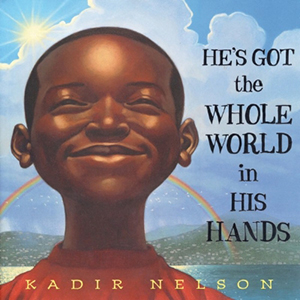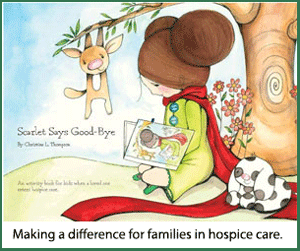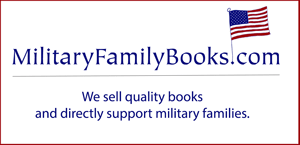Lisa Smith Molinari thought the daily chaos of life was about to overwhelm her, until she discovered a lifeline: writing. It changed her life—in more ways than one. Now an award-winning newspaper columnist, author of the upcoming book The Meat and Potatoes of Life: My True Lit Com, and coauthor of Stories Around the Table: Laughter, Wisdom, and Strength in Military Life, Lisa says writing helped her through the challenges of being a military wife and mother of three during her husband’s year-long deployment.
For many writers like Lisa, the act of putting pen to paper or fingers to keyboard brings mindfulness, order, and context to daily events and major life challenges. At first, writing wasn’t a career path for Lisa but a way to save her sanity. Carrying a yellow legal pad everywhere she went, Lisa began her writing journey by making lists: task lists, self-improvement lists, lists of funny things that happened, and more ideas poured onto the page.

Lisa Smith Molinari’s career as a nationally syndicated columnist and book author began when she started making lists to help her organize and process the chaos of her daily life.
“Lists help me organize, sort through, prioritize, and manage stress and worry,” says Lisa. “I’m scattered until I sit down, think things through, and put them on paper. I can peel away all those details, put them in their boxes, and close them up. Whether I’m writing a to-do list or the beginning of a column for the week, it has a grounding effect for me. Writing became my way of sorting through the overwhelming details of daily life, distilling them down to what really mattered—and more importantly—what really didn’t.”
Brenda Pace, author of several books, including the four-book series Journey of a Military Wife: God’s Truth for Every Step, says lists are powerful tools for her as well, serving as more than reminders about what to do and when to do it.
“Writing and then organizing lists helps me unravel thoughts that bring confusion or anxiety. It is a soothing practice that brings order to my world,” she says. “I also make use of lists through bullet-journaling, which promotes both goal-setting and memory-making.”
Brenda, also a coauthor of Stories Around the Table, is a life-long journal keeper and believes strongly in the power of stories and personal writing.
“Writing is a safe place for me, while also being the most vulnerable space I’ve held,” she says. “I’ve journaled since I was in grade school. As a child I wrote in my diary—complete with lock and key. The pages provided a safe place for me to write my thoughts, dreams, and stories. I found solace, comfort, and understanding of what was going on in my world within those pages.”
For Lisa, list-making progressed to writing stories about her family and her life. Her lifeline of stories formed the basis of what became first a syndicated newspaper column and now a book. She finds stability and purpose in both personal and professional writing.
“Writing is the ultimate tool for mindfulness,” she says. “It’s sitting down and understanding what you’re thinking and feeling, rather than simply reacting to the stress in the moment.”

Suzette Martinez Standring is a book author and nationally syndicated columnist. She leads writing workshops based on her books, including workshops about mindful writing.
Suzette Martinez Standring, executive director of the National Society of Newspaper Columnists and author of The Art of Column Writing and The Art of Opinion Writing, says mindfulness is important to a writer’s work and personal well-being.
“Mindfulness makes me more aware, because I often weigh my feelings against my own actions,” she says. “Writing makes me more measured and disciplined, traits that do not come easily to me. Like my readers, I am a work-in-progress. If I didn’t write, I would miss being in the zone, that magical, private realm of creation where I am most aware of my own unique expression.”
Meagan Frank, author of the Choosing to Grow series, says writing is a grounding exercise for her. Grounding techniques are activities that decrease stress and anxiety, usually employing one or more of the senses. Writing—especially by hand—can be a very purposeful and sensory action, one that Meagan says brings her to the present.
“I started journaling as a kid to deal with difficult emotions,” she says. “I didn’t know it at the time, but I was using the pen and paper to ground me and to literally focus my energy in order to process what was hard and abstract. There is something centering and focused about holding an actual pen to actual paper.”
The benefit of writing she discovered early in life continues to help Meagan in her life as a wife, mom, coach, and professional writer. She keeps a journal and writes in it each morning.
“It is a prayer journal, intended to center my thoughts to be more spiritual in nature, but it has had the effect of clearing clutter in my mind to prepare me to write too,” she says. “I still find that the pen to paper works for me to ground my thinking, process my emotions, and clear my mind.”
Lisa says writing increases her external as well as internal awareness, helping her pay attention to the events of her life, which provide much of the material for her published work.
“In such a fast-paced world, writing about my life forces me to slow down, think about what happened, choose my words, recreate the scene,” she says. “ I wonder if I hadn’t started writing, how life would be different. So many things I might not have taken the time to think through carefully. It might all be jumbled experiences in my head that I never fully processed or drew conclusions from.”
“Writing is the ultimate tool for mindfulness.”—Lisa Smith Molinari
The accountability of writing a regular column means Lisa has to dig into her own experiences close to home, as well as pay attention to what’s going on in the world and what it means to her and to her readers.
“I have to look for other people’s perspectives and evaluate my own,” she says. “I’m grateful for all I’ve learned about the world and myself by sitting down and processing life, because I have to write about it every single week. Thoughts and memories swish around in a deep pit in your mind where you wouldn’t otherwise go. Put yourself under deadline pressure, and you’re gonna go there. Put the shovel in your hand, and who knows what you might find. You might find a gem.”
Making sense of the world sometimes means making sense of personal experiences. In her column, Suzette wrote about the search for a half-sister she had never known, a search that eventually led her to discover her sister’s obituary. To write about the experience, the obvious choice would have been to focus on regret and lost opportunities, but Suzette wanted to look deeper.
“As a writer, I puzzle out an unanswered question step by step, often through meditation, experiencing a memory, feeling the emotion, and allowing the lesson to make itself known,” says Suzette. In the story about her sister, she says, “I looked deeply into why I chose not to find her sooner, and I came to this discovery: that my father’s disownment of her became mine; that a subconscious loyalty to my dad decreed that his feud became mine, though she had never done anything to me. My column was about unnecessary estrangements and separations that happen when the actions of others become our own by default.”
As writing elevates mindfulness, Suzette says mindfulness also elevates the quality of a writer’s work. She leads workshops to help writers use meditation to bring out creativity and hidden stories or memories.
“To write with a fresh angle or from a place of bravery requires me to go down into the dark and look around,” says Suzette. “In that private place, I am mindful of how I felt in a memory, or how I feel during painful exploration. If you feel it, you can convey it. Emotion is the bond between writer and reader—immediate, authentic, relatable.”
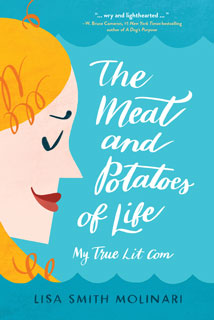
Lisa’s book The Meat and Potatoes of Life is a witty memoir based on her nationally syndicated column of the same name.
Using guided meditation in one of Suzette’s workshops helped Lisa discover the story that became the closing chapter of The Meat and Potatoes of Life. It’s a scene from a home movie of a day at the beach when Lisa was a toddler, showing her playing in the water and being overcome and knocked down by a wave. She remembered watching the movie while she was growing up but had never considered what the scene meant to the larger story of her life.
“I had no idea until then what the ending of my book would be,” Lisa says. “When I remembered that scene again, it was so reflective of my story. The fear of being overwhelmed was what I had to overcome. I had already written about that in the beginning of my book without knowing what the ending would be.”
When facing a challenge that causes confusion or anxiety, Brenda writes in her journal to juxtapose daily doubts with the foundation of her faith.
“As a Christ-follower, I will often write thoughts or self-talk that I know are not truth on one page, and on the other page I counter those thoughts with what I know is truth from scripture,” she says. “I write to preach to myself, to comfort myself, and at times to encourage others with the lessons I’ve learned. I gain understanding of myself.”
Writing often involves telling stories. Writers use stories to connect with readers, of course, but stories also help writers connect with their own emotions and experiences. An event that feels chaotic in the moment may take on a greater meaning in retrospect or when taken in context with other stories.
Brenda’s Journey of a Military Wife interprets the challenges of military life through the lens of journey stories from the Bible. In Stories Around the Table, she wrote about one of her own difficult journeys as an army wife. During one cross-country move all of her family’s belongings went temporarily missing along with their moving truck. In the moment it was a disaster, but by retelling the story Brenda found layers of meaning for herself and for her readers.
“Everyone has moving stories, some good and some bad,” she writes. “Very few are perfect. Uncle Sam writes the narrative of where and when for those stories, but he doesn’t control our contentment. That part of the story is ours to determine.”
Being able to tell a story and interpret it gives power to the storyteller. For Lisa, finding the humor in every situation, even the difficult ones, is another way to make sense and bring value to her experiences.
“The more grounded I am, the more I’m able to find the humor in things,” she says. “It seems like it would be impossible for some situations to be funny, but when I sit down to write, I sort through the details to ask: What’s funny? What’s poignant about all this? Humor can open the door to other emotions connected to the situation.”
Suzette says writing is a natural avenue of emotional connection and personal revelation, one that is good for the writer and for the quality of writing.
“Writing is an expressway from head to hand, made better by tarrying in the place of heart,” she says. “Writing makes me focus on what makes me, me. Not an easy sharing, but it’s why I write. I suspect it’s why we all write. So others will not feel alone.”
Resources for Mindful Writing and Living
Workshop
Self-Hypnosis as A Writing Tool with Suzette Martinez Standring
Suzette guides participants through exercises designed to encourage relaxation and enhance creativity.
Books
Fresh Brewed Life: A Stirring Invitation to Wake Up Your Soul by Nicole Johnson
Journaling is one of several methods Nicole encourages readers to employ in order to engage more fully in their lives. She emphasizes embracing identities, dreams, and people by learning to love and communicate in ways that bring joy and closeness.
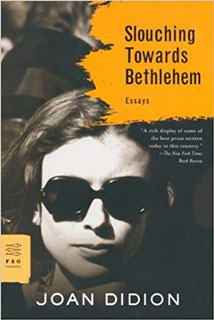 Slouching Towards Bethlehem by Joan Didion
Slouching Towards Bethlehem by Joan Didion
This essay collection includes the iconic essay “On Keeping a Notebook.”
On Writing: A Memoir of the Craft by Stephen King
Stephen King’s guidance and advice for writers is intertwined with his life story, as he describes his inspirations and motivations as writer, both technically and creatively.
Madeleine L’Engle Herself: Reflections on a Writing Life compiled by Carole F. Chase
A collection of Madeleine’s most insightful, illuminating, and transforming statements about writing, creativity, and truth.
Article
“Ten Tips for Mindful Writing and Meditative Journaling” from DevelopGoodHabits.com
Journals
Wreck This Journal by Keri Smith
This multi-sensory journal provides plenty of opportunities for sensory grounding exercises. Keri asks readers to fill the pages of the book by making messes and mistakes. Suggestions and directions for encouraging freedom and creativity include poking holes through pages, adding photos and defacing them, painting with coffee, coloring outside the lines, gluing found items on pages, and more.
Journals by Meera Lee Patel
In a series of journals, this author and artist uses a mixture of her watercolor lettering and painting, inspirational quotes from various sources, plus questions and journaling prompts to help readers explore their feelings and realize their abilities in spite of limitations, real or perceived.
Start Where You Are: A Journal of Self-Exploration
“Navigate the confusion and chaos of daily life with one simple reminder: that every answer we’re looking for is already inside us.”
My Friend Fear: Finding Magic in the Unknown
“Fear is a chance to make big change—and the very best time to discover the unexpected magic hidden within us.”
Made Out of Stars: A Journal for Self-Realization
“A space to reflect on what makes us incredibly beautiful individuals—and yet, an integral part of a beautifully complete whole.”
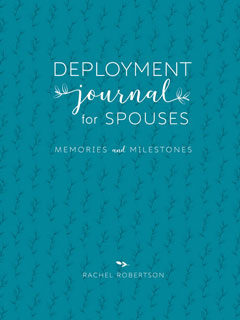 Deployment Journal for Spouses: Memories and Milestones (3rd edition) by Rachel Robertson
Deployment Journal for Spouses: Memories and Milestones (3rd edition) by Rachel Robertson
This journal offers encouragement and perspective to guide spouses and significant others through the emotional journey of a loved one’s military deployment. The mix of prompts with room for creative expression allows for a mindful exploration of emotions, intentional self-care, and relationship nurturing. Rachel also wrote a version for parents who have an adult child deployed with the military (Deployment Journal for Parents).
Passion Planner
Available for purchase as a book or as free downloadable pages, this multi-use journal and planner is designed to encourage users to plan for the future, reflect on the past, and act on the present. Includes space for journaling, drawing, or doodling as an exercise to release creativity and make it part of each day’s plan.
Mindful Writers mentioned in this article:
Lisa Smith Molinari
Blog: TheMeatandPotatoesofLife.com
Facebook: /TheMeatandPotatoesofLife
Twitter: @MolinariWrites
Instagram: @lsmolinari
LinkedIn: /Lisa-Smith-Molinari
Nationally syndicated column: Stars and Stripes
The Meat and Potatoes of Life: My True Lit Com
Stories Around the Table: Laughter, Wisdom, and Strength in Military Life
Brenda Pace
Web: BrendaPace.com
Twitter: @bkpace
Instagram: @bkpace
Journey of a Military Wife
The One Year Yellow Ribbon Devotional
Stories Around the Table: Laughter, Wisdom, and Strength in Military Life
Suzette Martinez Standring
Web: ReadSuzette.com
Twitter: @Suzette_Stand
Instagram: @Suzette_Standring
LinkedIn: /SuzetteStandring
The Art of Column Writing
The Art of Opinion Writing
National Society of Newspaper Columnists
Web: Columnists.com
Facebook: /Columnists
Twitter: @NSNCgroup
Instagram: @NSNCgroup
Meagan Frank
Web: MeaganFrank.com
Facebook: /MeaganFrankAuthor
Twitter: @MeaganFrank_ctg
Instagram: @MeaganFrank
LinkedIn: /Meagan-Frank-6802ab20
YouTube: @MeaganFrank1
(forthcoming) The Team Adult Playbook: Choosing to Build a Better Village for Our Sporting Kids
Feature photo courtesy of Lisa Smith Molinari.
Do you have a great resource for mindful writing? Include in the comments below or on our social media.
Terri Barnes is the author of Spouse Calls: Messages From a Military Life, and senior editor for Elva Resa Publishing, which specializes in resources for military families. She is a great believer in the power of all kinds of writing and leads workshops about journaling and letter writing. TerriBarnesAuthor.com
This article was first published March 2020.

